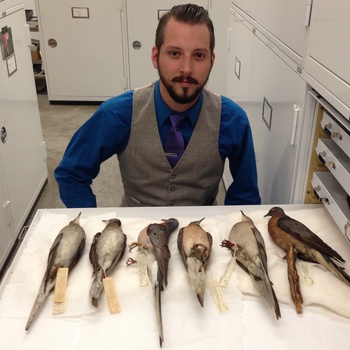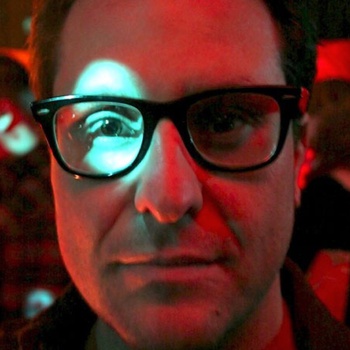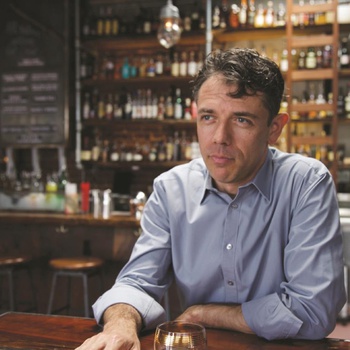The Loop: Decision Technology and How to Resist It
Jacob Ward
October 8, 02019
In this conversation, NBC’s Jacob Ward, will describe the loop: the endless feedback cycle of pattern-recognition that threatens to collapse the complexity of human behavior into a predictable set of patterns across politics, entertainment, relationships, and art itself. Why is the loop so powerful? Why do companies keep empowering it? And what can we, as private citizens, do to resist its pull?
Jacob Ward is a Berggruen Fellow at Stanford's Center for Advanced Study in the Behavioral Sciences (CASBS), co-sponsor of this talk.
Jacob Ward is technology correspondent for NBC News, where he reports on-air for Nightly News with Lester Holt, MSNBC, and The TODAY Show. The former editor-in-chief of Popular Science magazine, Ward was Al Jazeera’s science and technology correspondent from 02013 to 02018, and has hosted investigative documentaries for Discovery, National Geographic, and PBS. As a writer, Ward has contributed to The New Yorker, The New York Times Magazine, Wired, and many other publications. His ten-episode Audible podcast, Complicated, discusses humanity’s most difficult problems, and he’s the host of an upcoming four-hour public television series, “Hacking Your Mind,” about human decision making and irrationality.
Ward is a 02018-19 Berggruen Fellow at Stanford University’s Center for Advanced Study in the Behavioral Sciences, where he’s writing The Loop: Decision Technology and How to Resist It, due for publication by Hachette Book Group in 02020. The book explores how artificial intelligence and other decision-shaping technologies will amplify good and bad human instincts.
Upcoming Talks
Videos

Johanna Hoffman
Speculative Futures: Design Approaches to Foster Resilience and Co-create the Cities We Need
October 12, 02022

Creon Levit
Space Debris and The Kessler Syndrome: A Possible Future Trapped on Earth
April 26, 02022

Brittany Cox
Horological Heritage: Generating bird song, magic, and music through mechanism
August 20, 02019

Elizabeth Lonsdorf
Growing Up Ape: The Long-term Science of Studying Our Closest Living Relatives
April 30, 02019

James Holland Jones
The Science of Climate Fiction: Can Stories Lead to Social Action?
January 29, 02019

Kevin Kelly, Stewart Brand, Alexander Rose
Siberia: A Journey to the Mammoth Steppe
January 22, 02019

Caroline Winterer
The Art and Science of Deep Time:
Conceiving the Inconceivable in the 19th Century
September 4, 02018

Esther Dyson
The Short Now: What Addiction, Day Trading, and Most of Society’s Ills Have in Common
July 17, 02018

Hannu Rajaniemi
The Spirit Singularity: Science and the Afterlife at the Turn of the 20th Century
July 10, 02018

Shahzeen Attari
Facts, Feelings and Stories: How to Motivate Action on Climate Change
June 26, 02018

Renée DiResta
Disinformation Technology: How Online Propaganda Campaigns Are Influencing Us
April 10, 02018

Scott Kildall
Art Thinking + Technology: A Personal Journey of Expanding Space and Time
August 15, 02017

Miles Traer
The Geological Reveal: How the Rock Record Shows Our Relationship to the Natural World
June 27, 02017

Andrew Lakoff
How We Became “Unprepared”:
Imagining Catastrophe from the Cold War to Bird Flu
May 30, 02017

Jennifer Petersen
Why Freedom of Speech Is More Than Speech:
Expressions in Media and Code
April 18, 02017

Tara Behrend
The Psychology of Surveillance:
How Being Watched Changes Our Behavior
February 28, 02017

Ben Novak
The Next Flight of the Passenger Pigeon: Engineering Nature's Engineers
September 27, 02016









































































